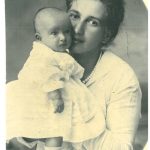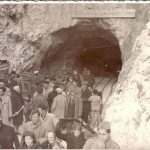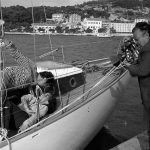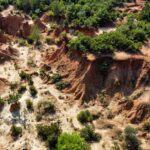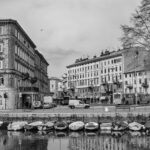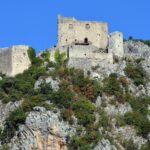An interesting e-mail from Manuela came few days ago:
“Ciao Paul,
this is a story about Croatia and Italy, a matrioska of female stories starting in 1919, still echoing.
I came across your blog via Facebook, and I decided I would give this story a try by writing to you. First of all, please excuse my English, and excuse me for taking your time to read this email.
Good: apologies made, here is the story: my name is Manuela, 45, I live in southern Italy (Bari), daughter of a WWII refugee from Split, grand-grand daughter of Vinka Sperac Bulic (http://www.domine.hr/?lang=hr&index=111). Dalmatia-addict and uvala Basina wannabe resident.
Reading your blog soothes my islandsickness and intensifies envy 🙂
The story is about a diary that my grand-grandmother Vinka wrote for her daughter Jelka (Puse),
This diary covers the years from her birth, in 1919, to 1953 when Jelka and her family had moved to Bari, Italy, due to WWII. The document was given to my mother, who in time translated it into Italian and edited it to be a book, published this year.
The “try” I would like to give to this family “saga” is to make it known in/to Croatia. It is a family tale, it is an historic tableau of Split at that time, it is well written and, well, in my most humble opinion it deserves a chance.
I would love to send you some excerpts (in Croatian), may Idisturb you this much? (I consider “No” a possible answer, don’t worry.)
Part of my roots are Croatian, and whenever I can I try and keep them alive by watering them with Jadransko more, having chosen Jelsa as my summer buon retiro. They say blood is thicker than water: in my case, it’s salty water.
Hvala puno for your time, really.
Best regards,
manuela”
So, we are really excited about these excerpts from the book about Puse. We will make it an once-a-week series. Manuela is looking for possible publishers of the book in Croatia.
Please note, these translations are non-edited and all copyrights are reserved to their respective owners.
Part I.
Vinka comes from a family of well-known intellectuals from the town Solin. She is a self-taught lady with an encyclopaedic knowledge, a journalist and a feminist ante litteram, an assistant to the priest and archaeologist Father Frane Bulić (ungle of her husband), the curator of the Archaeological Museum in Split, who discovered the Roman ruins in Salona.
Her husband Mate Bulić, a Commissioner of the Ban authorities in Split, a kind of administrative manager of the province, completely dedicated to his work, which is why he is rarely mentioned in the diary..
Vinka gave birth to two sons, in 1907 and 1908, at the age of 23 and 24.. When she conceived Puse, born in 1919, Vinka was surprised and in disbelief, that a “dry vineyard”, as she described herself, at the age of 35 can still create a new human being.
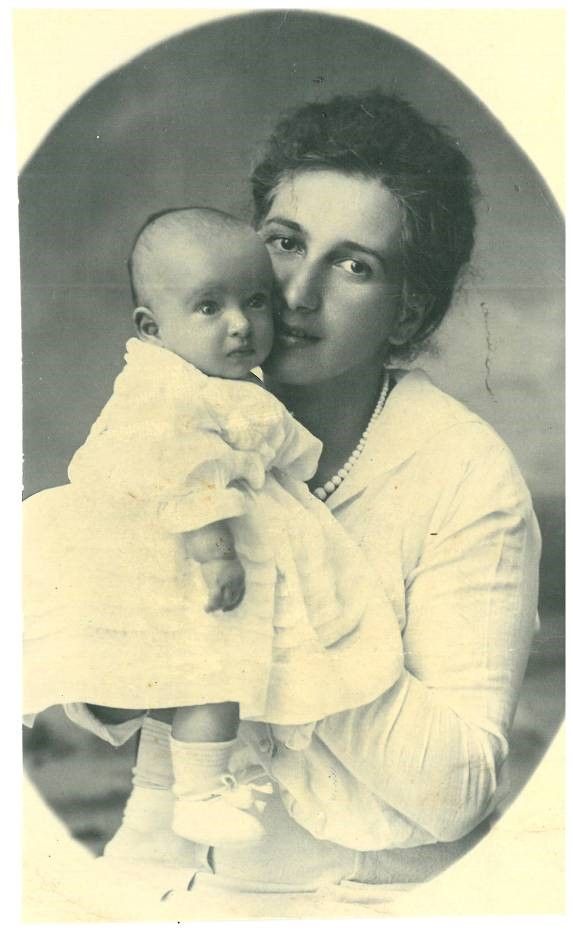
This diary came as a result of a surprise,.. and an awareness about the fact, that she is becoming a mother in adulthood, but it was also written out of love towards a part of herself, that is separating and will live independently and grow over time. It derives from the need to discover and tell someone, with a typical intellectual curiosity, the mother-daughter relationship, which even Vinka alone doesn´t know at the beginning; she doensn´t know how it will develop and at the same time feels like an amazing journey to the puzzle of the human emotions.
Puse´s first name is Jelka, but for everyone she will always be know only as Puse; a nickname she got from her mother as soon as she was born. –

